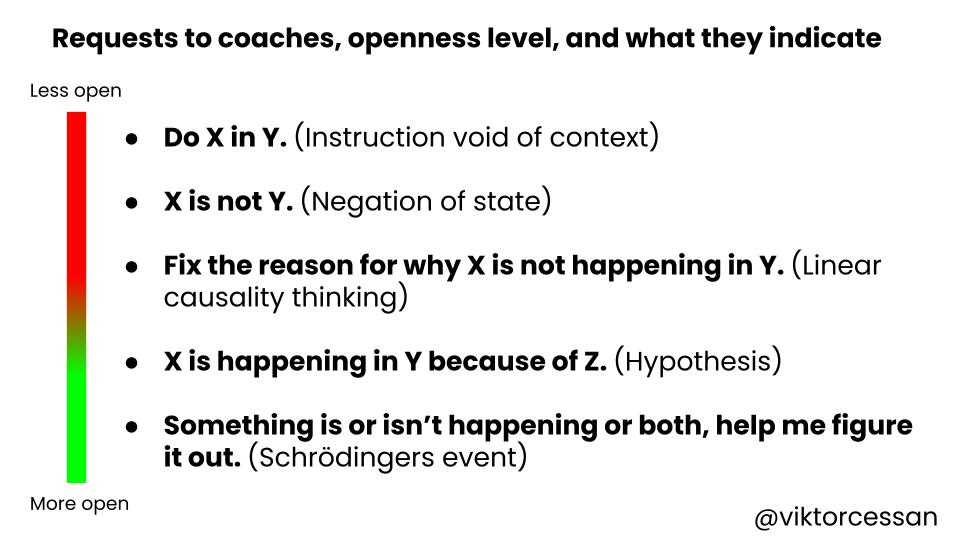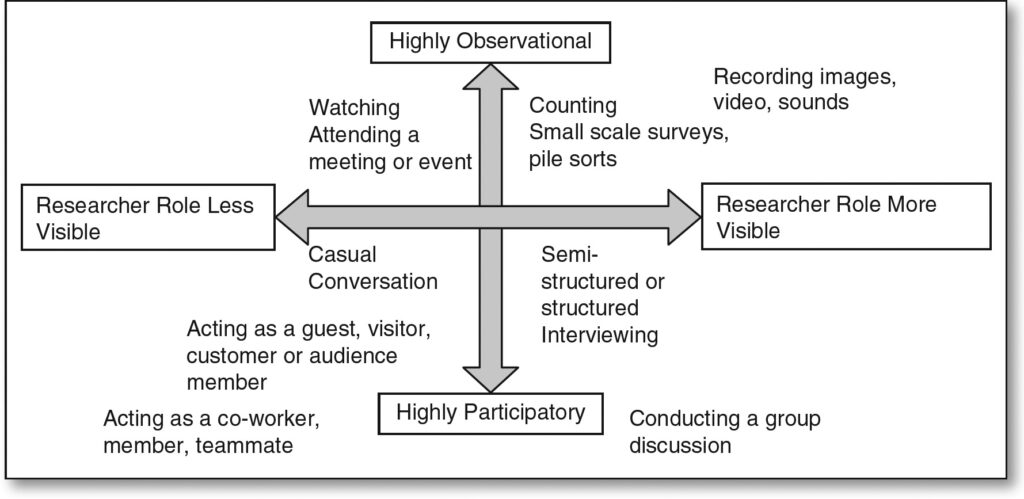I recently held a talk on Agile By Example about the importance of agile coaches making informed interventions when coaching systems and agile, and that many coaches are making dogmatic interventions.
I argued, and still do, that more often than not, agile coaches and scrum masters fall short in their intervention process. They intervene when they ought not to, and they skip interventions that could have a significant and positive impact.
I want to make some clarifications in this post, mainly to define “Informed interventions” and to offer suggestions on how you can move beyond dogmatic interventions. I also want to repeat here that I think this is not a reflection of who coaches are, but that dogmatic interventions is a function of the training and expectations that coaches get.
What makes informed interventions difficult?
Coaches have become a specialized role as opposed to the generalist role it started off as. This is not exclusive to the coach role, this is an industry wide phenomena where people are asked to specialize earlier. Esther and I talk about this in an episode of our podcast.
Being a specialist means having greatly reduced options, so the training is a partial factor. But the quality of those trainings have also degraded over the year as emphasis is placed on certification rather than application.
Additionally, the request that the coach gets also impacts the ability to make informed interventions. And many requests seem to be for dogma.

Dogmatic Interventions
Dogma is any belief you hold with unquestionable certainty. It’s the things you know for sure and that you are unwilling to examine. What’s happening in the context does not matter at all because you are 100% sure that your opinion is correct.
“If the team just tried [insert favorite agile practice], they’d see I ‘m right/things would improve”, or “If they just stopped doing [insert least favorite agile thing], things would turn out well”, and “[insert favorite agile technique] is how all the cool kids are doing it, and therefore it is how we ought to do it” are examples of thoughts anchored in dogma.
A few years ago there were two camps very active about #noestimates. The one side was dogmatic about them never having any value what-so-ever, that it’s even unethical. The other side argued it’s a necessity for making investment decisions so teams should always be making them.
But there was a third group that was early engaged with the community but then quickly dropped off–the ones with situational awareness. That wondered in what contexts it might be useful, and what options there were. But they quickly opted out as there was no commitment to finding the truth–people were being dogmatic.
Success over time becomes future dogma
There’s a funky dynamic with how dogma with agile coaches emerge. It starts with techniques evolving in one context as that context attempts to address a situation. The company’s evolutionary landscape and deliberate attempts to improve leads to a success story.
That success story is then spread rapidly, and then attempted in non-similar contexts. Snowden’s “Flexuous Curves” helped me understand how useful techniques (can) become future dogma. At least, that was one of my take aways but I want to be transparent with that I may have misunderstood this part of his framework.
When I mentor coaches, this is one of the areas we explore the most–shifting from dogmatic to informed interventions. And it is also one of the areas they express the most gratitude to start practicing with me.
So to summarize. Dogmatic interventions = one option, and no openness to your context, or to change the way you reasoning.
Informed interventions
The alternative is making informed interventions (a term I borrow from Esther Derby and her book “7 Rules for Positive, Productive Change”), .
Informed Interventions = situational awareness + options + feedback loop
If you as a coach do not have situational awareness you cannot generate options. If you do not have options, the action you take is not based on any critical thinking or reflection, and cannot be considered informed.
The feedback loop is important because without it, there’s no learning. Without learning you can’t be informed.
So whenever you make interventions at work, those are the things you need first.
What can be considered an intervention?
You might be wondering if presenting observations, offering feedback, holding a training, or implementing a new practice constitutes an intervention and the answer is yes, all of them can be considered interventions.
Any act you make to attempt to modify something could potentially be considered an intervention.
So it could even be asking a question, or creating a feedback loop such as introducing people to each other.
Becoming more situationally aware
A significant blindspot coaches have, that the trainings that exist do not cover, is how to observe. There are some trainings, but they’re not always accessible to people as they don’t offer agile certifications and may therefore be down-prioritized by employers.
Esther Derby and Don Gray’s “Coaching Beyond the Team” is a good training that teaches you how to observe systems. Their PSL (Problem Solving Leadership) is also a very good choice. Particularly if you take the opportunity to observe as you cover those concepts in the training.
Snowden’s sessions on Cynefin is also an obvious choice if you want to become better at observing.
Different styles of observing
When I ask coaches how they determine their style of engaging, or observing, they aren’t aware that there are different styles.
Anthropology has a lot to offer us in this area. It’s not necessarily an easy field to read more about, but the picture below offers options in how you can engage with your context.
Collecting Qualitative Data: A Field Manual for Applied Research – Sage Publications
If you’re curious about the right side, consider reaching out to the UXers in your context. They can often mentor agile coaches with anything from planning an observation, to making it, to making sense of the data you’ve collected.
Moving beyond Dogma
If you like this you might be wondering how you shift from dogmatic to informed interventions. One part of this is broadening your profile. To learn about areas beyond agile, such as anthropology, ethnography, and systems. For example, reading up on ecological models will offer many insights about your organizations.
You may also want to plan interventions in a group. Find people with different backgrounds and experiences and explore a context together--pair-coach.
But you can also do things by yourself to take the first steps. The next time you want to make an intervention at work, first explore your situational awareness, options, and the existence of feedback loops. Write down what you know, then ask yourself whether your conclusions hold.
